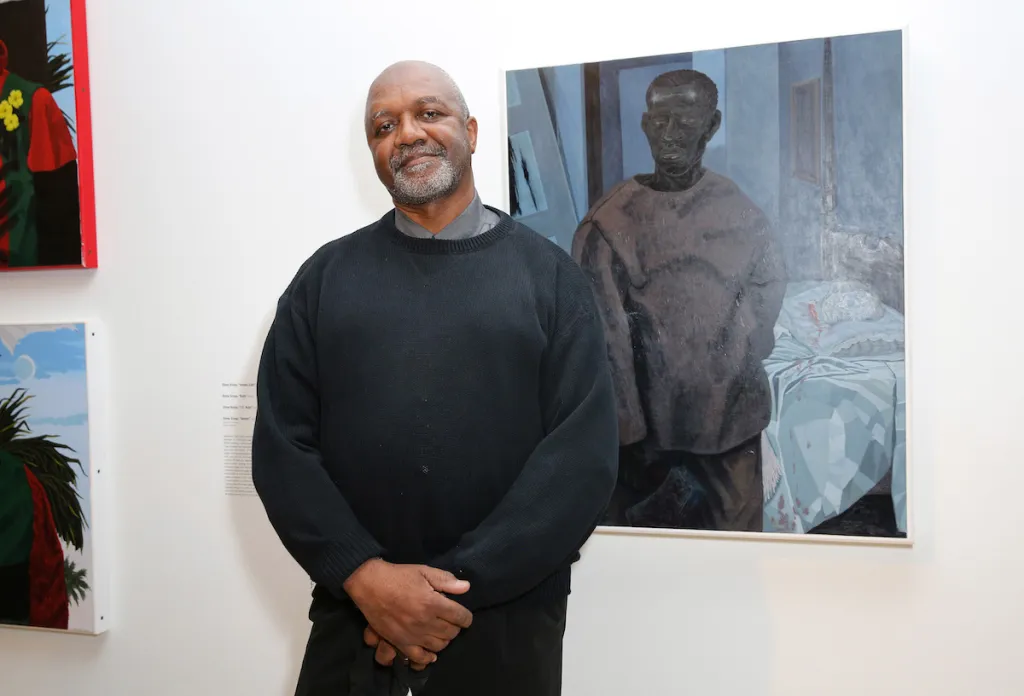Superlatives have been lavished upon Kerry James Marshall, and understandably so. His acclaimed paintings of the past four and a half decades have challenged the systemic exclusion of Black figures across art history while also protesting racism in the present—no small task, and not an easy one. Perhaps it is appropriate, then, to label Marshall a genius or a master, just as you might for a portraitist of the Dutch Golden Age or an abstractionist of the 20th century.
But Marshall (b. 1955) has preferred a different term for himself: radical pragmatist, the label given to him by a friend, the artist Arthur Jafa. “I do see myself that way,” Marshall recently told the art historian Benjamin H. D. Buchloh. “As a strategy, as a technique, I try to know as much as possible about the operation, construction, and appearance of art so that I can be more precise in the way I deploy whatever seems most effective for the project.”
That statement is itself a form of radical pragmatism, a gentle way of sanding down the very notion of mastery that has long guided our understanding of male artists in the West. No surprise that his traveling U.S. survey, mounted by the Metropolitan Museum of Art in the mid 2010s, was given the intentionally misspelled subtitle “Mastry.”
Now Marshall has another survey, this one taking place (through January 18, 2026) at the Royal Academy of Arts in London. That show, titled “Kerry James Marshall: The Histories,” is loosely themed around the notion of history painting vis-à-vis this artist’s work. Considered the highest form of art-making during the bygone days of the Paris Salon, history painting has been given a fresh workup by Marshall, who uses the format’s conventions to speak to our present.
Marshall’s art has been a lodestar for a range of figurative painters in the past decade. ARTnews even placed a Marshall painting at #3 on a recent list of the 100 best artworks of this century so far. Yet one joy of Marshall’s art is that it does not announce itself as major, forcing viewers to reckon with the very notion of greatness. Below, we offer a guide to five key examples of Marshall’s radical pragmatism.
